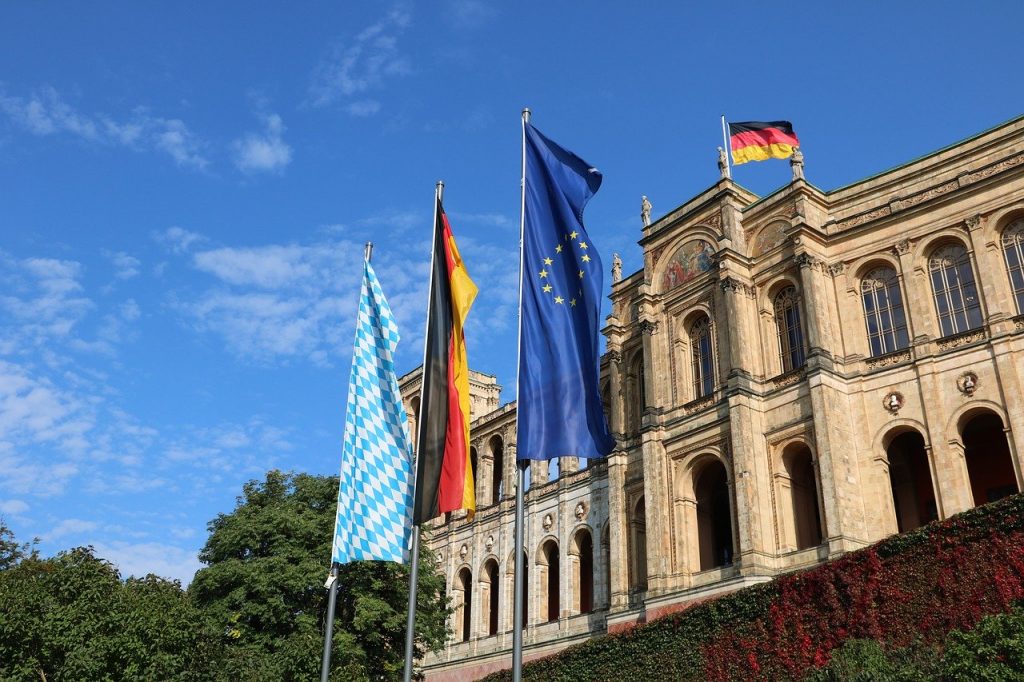The Germans on the Germans: North & South Posted by Constanze on Nov 27, 2019 in Culture, Language
Hallo! Every country has names for people from different regions within that country. In this post we will look at what people from northern Germany call people from southern Germany, and vice-versa (for a post on east and west Germany, click here!).
*Please note: The point of learning about these words is not to encourage anybody to use them, but to have an analytical approach to them: what do these words mean from a linguistic perspective, and why are they used? Where/how did they originate? This way, if you ever hear/see them used in the German language, you will have an understanding of what they mean and know not to repeat them yourself.
North Germany & South Germany
When people think of a divided Germany, they are most likely to think of the Cold War period, when Germany was divided into east and west. However, despite the country having been united for 30 years now, lots would argue there is an invisible divide between north and south Germany.
It is not uncommon for the northerners & southerners of a country to hold stereotypes about one another, and Germany is no different. The stereotypes are: The people in the north view those in Süddeutschland (southern Germany) as country bumpkins with weird dialects, while southern Germans view those in Norddeutschland (northern Germany) as pompous and humourless.
There are several differences between north and south Germany, such as their predominant religions: those in the north are more likely to be evangelisch (protestant), while those in the south are more likely to be katholisch (catholic).
There are historical and political differences, too. For example, during the Austro-Prussian War of 1866, Bavaria was closer in both culture and religion to catholic Austria than protestant Prussia (former name for the northern states of Germany), and so Bavaria fought against the Prussians, with Austria. When Austria was defeated, Bavaria joined the Prussian-formed German Empire.
Not everybody in the south was happy about this, and the repercussions are still evident today: The southern state of Bavaria has a political party – Bayernpartei – that campaigns for Bavaria to leave Germany and be its own, independent state. You can read more about this here.
There are many jokes that reveal what north and south Germans think of each other, such as this joke by north Germans about south Germans:
“What happens when a blonde moves from Berlin to Bavaria? The collective IQs of both places go up.”
Preußen
Preußen is the German word for Prussia. It is also what Bavarians call anyone who is not from Bavaria. Sometimes they use the more derogatory term, Saupreiß – literally ‘swine Prussian’.
Seppl
Seppl is something north Germans call Bavarians. Sepp or Seppl is the shortened version of the name Josef in Bavarian. It’s a stereotype that every second man in Bavaria is called Josef (and due to the region’s catholic background, this name is, in fact, very common in Bavaria).
Weißwurstäquator
There may not be a wall between north and south Germany, like there once was for east and west, but there is the Weißwurstäquator – the so-called “white sausage equator”, an unofficial name for the ‘cultural border’ between Bavaria and central/northern Germany. It is called this because Bavaria is famed for its Weißwurst (white sausage).

Build vocabulary, practice pronunciation, and more with Transparent Language Online. Available anytime, anywhere, on any device.





Comments:
Kathy Waldner:
Ich habe diesen Artikel mit großem Interesse gelesen, frage mich aber warum er nicht auf Deutsch ist. Oder habe ich die deutsche Version irgendwo verpasst?